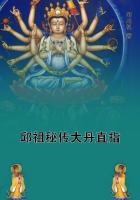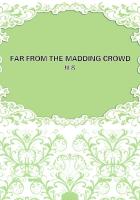A little amused at this first apparent sign of a want of confidence in himself, she said, with a reassuring smile, "So much the better,--you do it really too well to have it thrown away entirely on children."
"Do YOU wish it?" he said suddenly.
Somewhat confused, but more irritated by his abruptness, she replied, "Why not?" But when the day came, and before a crowded audience, in which there was a fair sprinkling of strangers, she regretted her rash suggestion. For when the pupils had gone through certain calisthenic exercises--admirably taught and arranged by him--and "spoken their pieces," he arose, and, fixing his eyes on her, began Othello's defense before the Duke and Council. Here, as on the previous occasion, she felt herself personally alluded to in his account of his wooing. Desdemona, for some occult reason, vicariously appeared for her in the unwarrantable picture of his passion, and to this was added the absurd consciousness which she could not put aside that the audience, following with enthusiasm his really strong declamation, was also following his suggestion and adopting it. Yet she was also conscious, and, as she thought, as inconsistently, of being pleased and even proud of his success. At the conclusion the applause was general, and a voice added with husky admiration and familiarity:--
"Brayvo, Johnny Walker!"
Twing's face became suddenly white as a Pierrot mask. There was a dead silence, in which the voice continued, "Give us 'Sugar in the Gourd,' Johnny."
A few hisses, and cries of "Hush!" "Put him out!" followed. Mrs.
Martin raised her eyes quickly to where her assistant had stood bowing his thanks a moment before. He was gone!
More concerned than she cared to confess, vaguely fearful that she was in some way connected with his abrupt withdrawal, and perhaps a little remorseful that she had allowed her personal feelings to interfere with her frank recognition of his triumph, she turned back to the schoolroom, after the little performers and their audience had departed, in the hope that he might return. It was getting late, the nearly level rays of the sun were lying on the empty benches at the lower end of the room, but the desk where she sat with its lid raised was in deep shadow. Suddenly she heard his voice in a rear hall, but it was accompanied by another's,--the same voice which had interrupted the applause. Before she could either withdraw, or make herself known, the two men had entered the room, and were passing slowly through it. She understood at once that Twing had slipped out into a janitor's room in the rear, where he had evidently forced an interview and explanation from his interrupter, and now had been waiting for the audience to disperse before emerging by the front door. They had evidently overlooked her in the shadow.
"But," said the stranger, as if following an aggrieved line of apology, "if Barstow knew who you were, and what you'd done, and still thought you good enough to rastle round here and square up them Pike County fellers and them kids--what in thunder do you care if the others DO find you out, as long as Barstow sticks to you?"
"I've told you why, ****," returned Twing gloomily.
"Oh, the schoolma'am!"
"Yes, she's a saint, an angel. More than that--she's a lady, ****, to the tip of her fingers, who knows nothing of the world outside a parson's study. She took me on trust--without a word--when the trustees hung back and stared. She's never asked me about myself, and now when she knows who and what I have been--she'll loathe me!"
"But look here, Jim," said the stranger anxiously. "I'll say it's all a lie. I'll come here and apologize to you afore HER, and say I took you for somebody else. I'll"--"It's too late," said Twing moodily.
"And what'll you do?"
"Leave here."
They had reached the door together. To Mrs. Martin's terror, as the stranger passed out, Twing, instead of following him as she expected, said "Good-night," and gloomily re-entered the schoolroom.
Here he paused a moment, and then throwing himself on one of the benches, dropped his head upon a desk with his face buried in his hands--like a very schoolboy.
What passed through Mrs. Martin's mind I know not. For a moment she sat erect and rigid at her desk. Then she slipped quietly down, and, softly as one of the last shadows cast by the dying sun, glided across the floor to where he sat.
"Mrs. Martin," he said, starting to his feet.
"I have heard all," she said faintly. "I couldn't help it. I was here when you came in. But I want to tell you that I am content to know you only as you seem to be,--as I have always found you here,--strong and loyal to a duty laid upon you by those who had a full knowledge of all you had been."
"Did you? Do you know what I have been?"
Mrs. Martin looked frightened, trembled a moment, and, recovering herself with an effort, said gently, "I know nothing of your past."
"Nothing?" he repeated, with a mirthless attempt at laughter, and a quick breath. "Not that I've been a--a--mountebank, a variety actor--a clown, you know, for the amusement of the lowest, at twenty-five cents a ticket. That I'm 'Johnny Walker,' the song and dance man--the all-round man--selected by Mr. Barstow to teach these boors a lesson as to what they wanted!"
She looked at him a moment--timidly, yet thoughtfully. "Then you are an actor--a person who simulates what he does not feel?"
"Yes."
"And all the time you have been here you have been acting the schoolmaster--playing a part--for--for Mr. Barstow?"
"Yes."
"Always?"
"Yes."
The color came softly to her face again, and her voice was very low. "And when you sang to me that day, and when you looked at me--as you did--an hour or two ago--while you were entertaining--you were--only--acting?"
Mr. Twing's answer was not known, but it must have been a full and complete one, for it was quite dark when he left the schoolroom--NOT for the last time--with its mistress on his arm.














